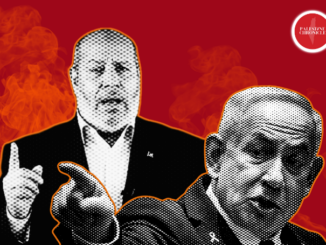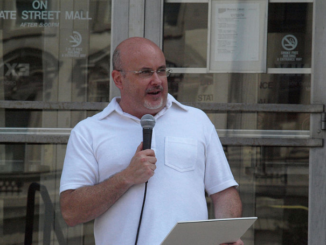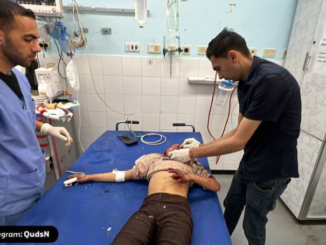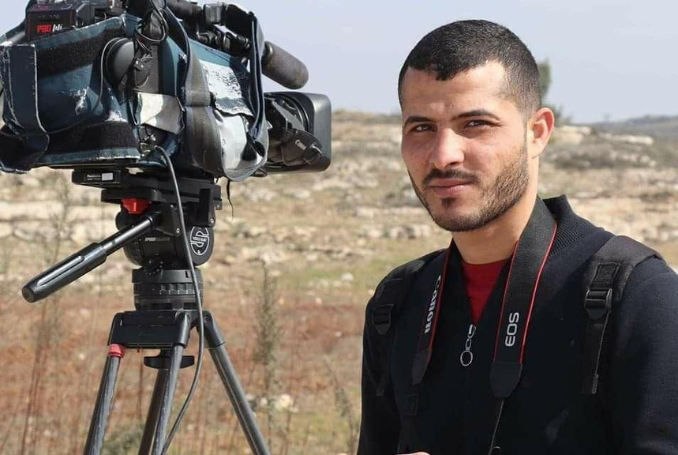
“I was in a miserable condition, exhausted and hungry without food, and when I asked for a medical examination, they attacked me again”.
Abdel Mohsen Shalalda, a 32-year-old Palestinian journalist from Hebron (Al-Khalil) was detained in Israel for six months.
Despite the relatively short period of detention, Shalalda still endures the effects of the mistreatment during his imprisonment.
At dawn on November 7 of last year, an Israeli army force raided Shalalda’s house in the town of Sa’ir, northeast of Hebron. After a thorough search of his home by Israeli occupation forces, the journalist was arrested and escorted into a military vehicle.
Cigarettes in My Head
From the moment of Shalalda’s arrest, who was working with a local media company called ‘G Media’, he was exposed to severe beatings on the chest, head, and back.
“The worst thing was that the Israeli soldiers were putting out their cigarettes in my head. I was in extreme pain, and every time I screamed, they would beat me again,” he told the Palestine Chronicle.
Following more than 36 hours of uninterrupted beating, in which Israeli soldiers would take turns to abuse the young man, Shalalda was transferred to the Etzion Detention Center, north of Hebron.
Upon his arrival at the detention center, Shalalda was exhausted and frail from the severity of the hours of beating. He lacked the strength to move his limbs while feeling that he had suffered several fractures in his rib cage.
“I was in a miserable condition, exhausted and hungry without food, and when I asked for a medical examination, they attacked me again,” he said.
Deprived of treatment and food, the journalist was transferred to Ofer Prison in the central West Bank. During the trip, he was again beaten while still not recovered from the first attack.
Although winter was looming in one of the coldest prisons, the Israeli occupation forces confiscated the prisoners’ blankets and warm clothes and forced them to wear the light uniforms of the Israeli Prison Administration that by no means protected them against the cold.
Touching moments of journalist Abdel Mohsen Shalalda meeting his child who was born while in the occupation prisons
? pic.twitter.com/ntkK8SBqkK
— ? mari ? (@mariresisting) May 8, 2024
While in prison, which lacks the minimal necessities of life, Shalalda was subjected again to interrogation and beatings.
“The interrogation was solely about my journalism work and when I responded that this is my breadwinner, the interrogator accused me of being affiliated with Hamas and that I was photographing the anti-war marches for Gaza for non-journalistic purposes,” he added.
Shalalda’s incarceration isn’t the first as he was arrested three times earlier and assaulted on numerous occasions while doing his work.
“The moment I was released, I learned that my wife had given birth to our child. I was deprived of contacting my family or knowing anything about them. We were sleeping hungry in the extreme cold,” the young journalist explained.
Daily Violations
Shalalda is one of many Palestinian journalists in the West Bank who are exposed to countless Israeli violations on a daily basis.
According to the Palestinian Prisoners’ Affairs Authority, since the start of the Israeli war on the Gaza Strip last October, the Israeli occupation forces have arrested 94 Palestinian journalists, 16 of whom are identified to be from Gaza.
To date, 50 journalists remain detained in inhumane conditions, five of whom are female journalists, while 15 of these journalists remain in administrative detention without any charge or trial.
Other forms of the Israeli occupation army’s malpractices against Palestinian journalists in the West Bank include but are not limited to; obstruction of work, harassment, verbal or physical insults, and confiscating or destroying equipment.
Documented Crimes against Journalists
The Freedoms Committee of the Journalists Syndicate said in its report last June that 84 attacks were registered since the start of the aggression on Gaza last October, during which Israeli soldiers had confiscated property belonging to journalists and at times destroyed it under the threat of arms.
The report pointed out that 50 incidents of seizing journalists’ cellular communication devices were monitored and documented, especially at the time of home invasion and arrest, in addition to about eight laptop computers, and the destruction and seizure of 8 printing presses, as well as the seizure of three drones for photography, cables for work, a microphone, and a protective shield, and several cameras were destroyed.
The Media and Public Relations Officer at the Palestinian Journalists Syndicate, Omar Nazzal, told the Palestine Chronicle that Israel follows the same criminal policy towards journalists, whether in Gaza or the West Bank.
According to Nazzl, this policy stems first from Israel’s hostility toward everything Arab and Palestinian, and second from its hostility towards the truth that journalists are always working to uncover.
“Israel is able to continue with its attacks on the Palestinian journalistic body because it is aware that the world including the United Nations and International courts will remain silent and will not hold it accountable in the face of its supporters represented by the forces of evil and colonialism in the world,” Nazzal concluded.
The lives of journalists in the occupied Palestinian territories, be it the West Bank, occupied Jerusalem or Gaza are no different from any other Palestinian citizen. Neither the law that protects them nor the honorable work they do to expose the truth comes in handy in the face of the brutality of the Israeli occupation.
(The Palestine Chronicle)
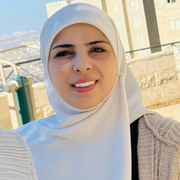
– Fayha’ Shalash is a Ramallah-based Palestinian journalist. She graduated from Birzeit University in 2008 and she has been working as a reporter and broadcaster ever since. Her articles appeared in several online publications. She contributed this article to The Palestine Chronicle.

